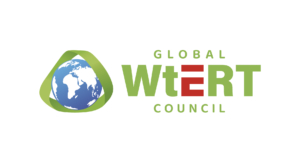It’s time for Africa to look for engineering solution to turn waste into energy
By Reda Kabbaj, Research Associate, Earth Engineering Center, Columbia University | VP International Relations, WtERT.org
The situation of waste management in Africa is getting worse. The continent’s poor waste management is already having an adverse effect on both human and environmental health. Most of the waste ends up in vast non-controlled landfill sites that release vast quantities of methane emissions, a gas about 80 times more potent as a greenhouse gas than carbon dioxide, which is responsible for heating the atmosphere and causes climate change. However, due to population growth, rapid urbanization and economic development, Africa is expected to experience a significant social and economic revolution during this century. This is anticipated to increase the generation of waste exponentially (Figure 1). This is expected to put considerable strain on already constrained public and private waste sector services and infrastructure, and future exacerbate the current state of waste management.
Today in Africa about 40% of the population lives in cities, and the urbanization rate will grow to 60% by 2050, with a population of nearly 2.5 billion. Therefore, landfilling sites will be difficult to find for major African cities. Land is already scarce and transforming virgin land to landfills is not a sustainable solution (60% of world arable lands are in Africa). However, the agencies responsible for managing the municipal waste do not have the knowledge and resources to deal with this major environmental problem.
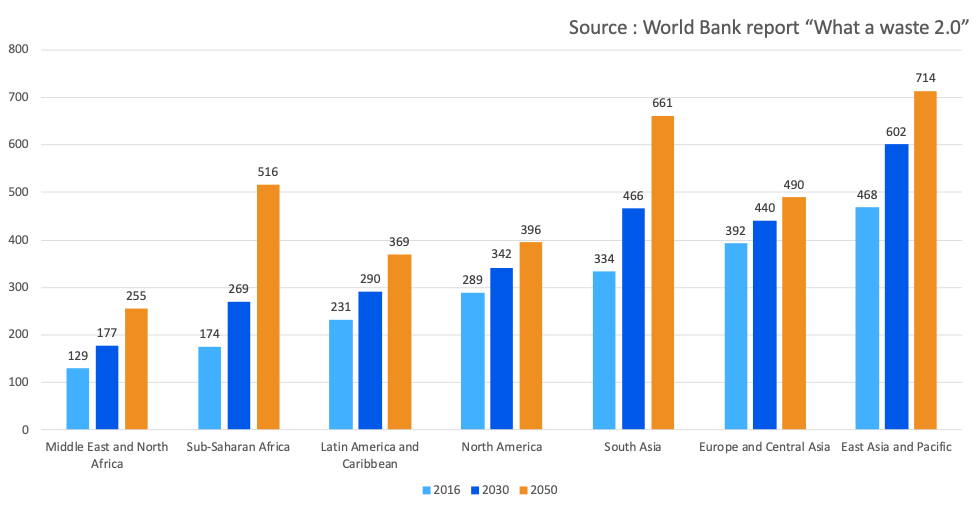 Figure 1: Projected Waste Generation by Region (Millions of tonnes per year)
Figure 1: Projected Waste Generation by Region (Millions of tonnes per year)
What can be done to meet this challenge?
African countries can learn from the 21st century experience of China as to how to deal with a rapidly growing generation of municipal solid wastes. China has gone a long way since the Wang Jiuliang film “Beijing besieged by landfills” when that city was surrounded by five hundred landfills.
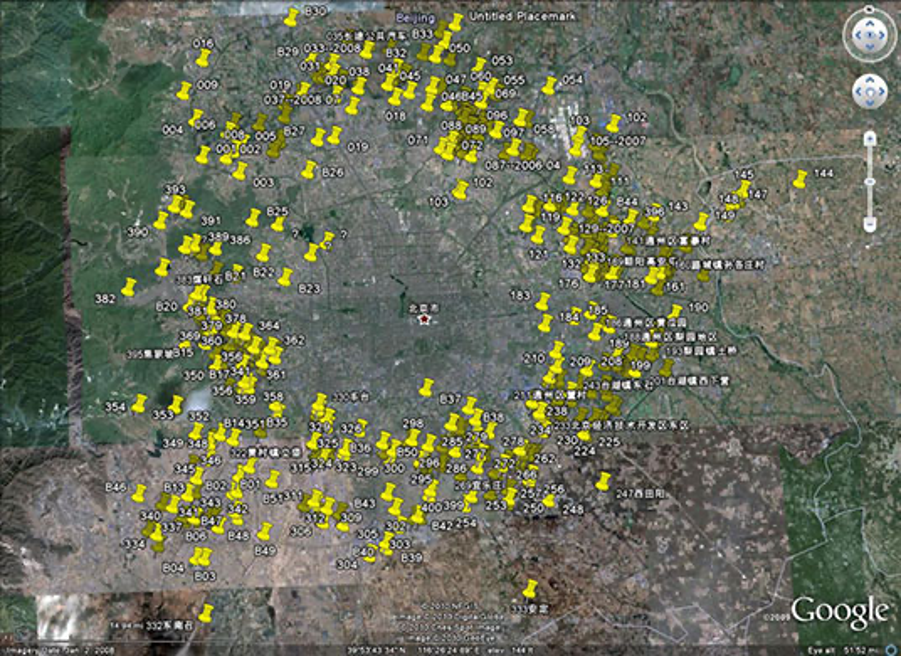 Beijing Besieged by Waste , Wang Jiuliang, 2008
Beijing Besieged by Waste , Wang Jiuliang, 2008
In the last twenty years, China has become the world’s front-runner in phasing out landfilling by producing electricity and recovering materials from municipal solid wastes by constructing over nine hundred Waste-to-Energy (WtE) power plants that thermally process 255 million tons of waste, exceeding the combined WtE capacity of the rest of the world.
This massive effort in constructing and operating Waste-to-Energy facilities has also resulted in greatly reducing the capital investment, per ton of WtE capacity, thus making these power plants accessible to low-income countries.
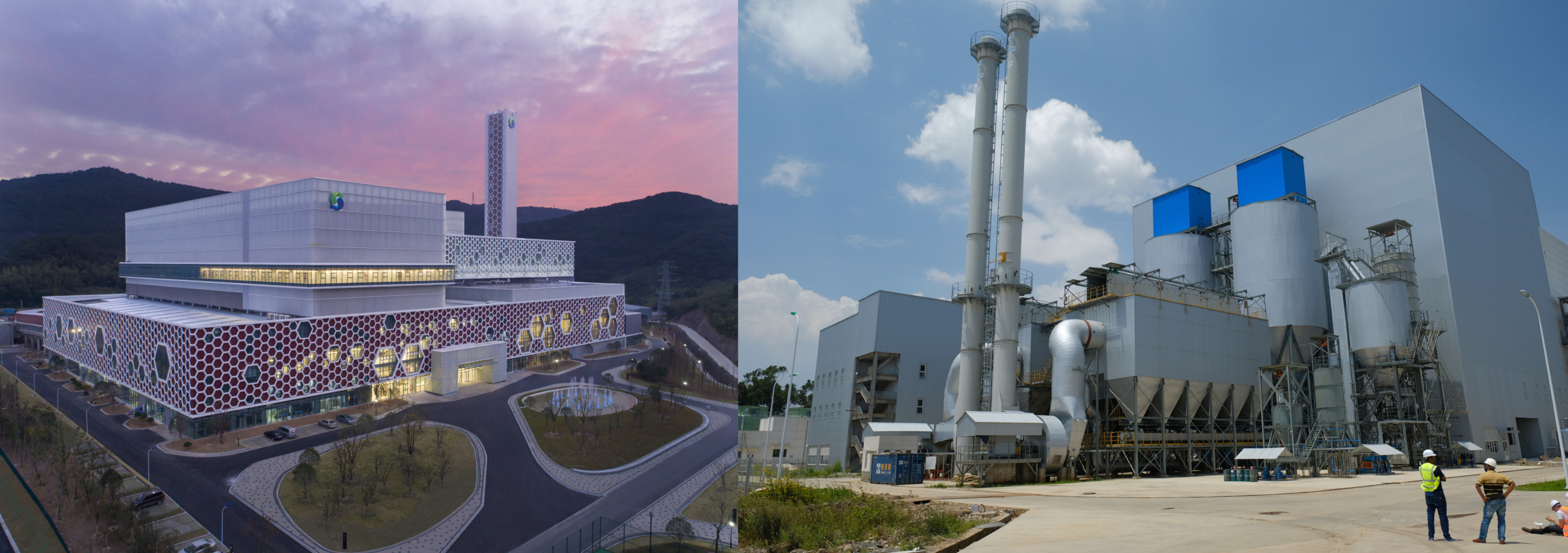 Photo left: A Waste-to-Energy power plant in Ningbo, China, combusts 2,250 tons of waste per day. Photo: SUS Environment
Photo left: A Waste-to-Energy power plant in Ningbo, China, combusts 2,250 tons of waste per day. Photo: SUS Environment
Photo right: A Waste-to-Energy Power Plant in Addis Ababa, Ethiopia. Photo: Wikipedia
The Reppie WTE facility in Addis Ababa, Ethiopia, is the lighthouse model of how cutting-edge technologies are addressing the challenge of African waste management. The facility processes 1,400 tons of municipal waste per day and produces 185,000 MWh of electricity annually that can power 25% of Addis Ababa’s households.
As noted earlier, the management of urban waste is very complex and academia can help African city leaders by transferring information from developed countries. An example of academia contribution is the Global WtERT Council (est. 2002, WtERT.org), a non-for-profit research organization founded by Dr. Nickolas Themelis, professor Emeritus of Columbia University. WtERT is an academia-industry research consortium that bring together engineers and scientists from industry, government and universities from 26 countries across the globe to collaborate on advancing sustainable waste management worldwide, in particular the economic and environmental performance of Waste-to-Energy (WtE) technologies; and disseminate all research and findings to the general public.
An example of such collaboration is a 2023 capstone project of Columbia’s School of International Public Affairs (SIPA; Faculty Advisor: Christine Capilouto; WtERT Consultant: Reda Kabbaj) who advised the Nigeria Sovereign Investment Authority (NSIA) regarding scalable and commercially viable investment opportunity in waste management in Nigeria. WtERT recommended that the Kingdom of Morocco be used as reference in conducting a comprehensive market and legal research study, with several Moroccan stakeholders. This capstone project won the 2023 Isaac Anderson Rauch Award for Excellence in a Capstone Project of Columbia University. The project recommended to NSIA key waste-to-energy technologies that NSIA should invest in; and provided a comprehensive financial model that NSIA can use to test inputs and scenarios for WtE power plants of different capacities.
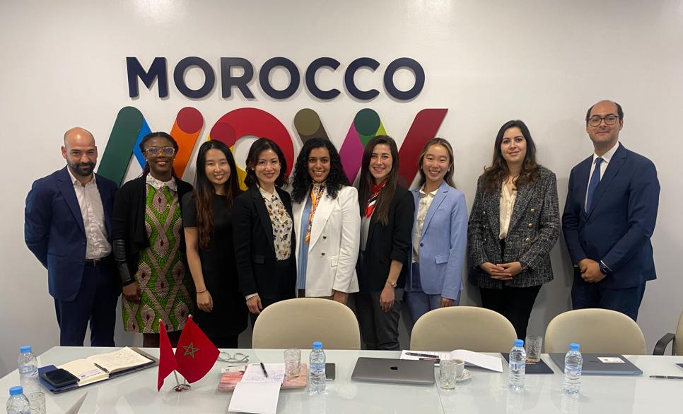
A global collaboration is needed to support African countries in implementing sustainable waste management, an innovative approach of China-proposed Belt and Road Initiative and US efforts for global economic development could unlock the progress of low-income countries to sustainable development.
